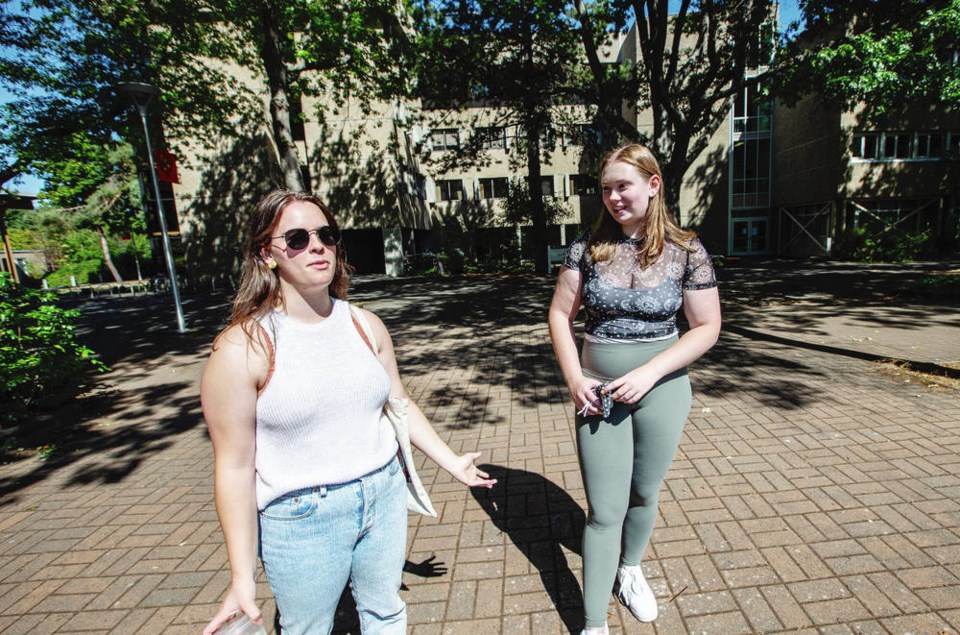Proof of vaccination will be required for post-secondary students wanting to live in campus residences or go to a campus pub, gym or club meeting, but won’t be needed to attend classes.
Provincial health officer Dr. Bonnie Henry said institutions can bring in their own regulations that go further than the provincial rules — such as requiring proof of vaccination for staff and faculty — but they cannot require proof of vaccination for students to attend classes.
“We know that the in-classroom setting is not the risky setting, and it’s incredibly important that we don’t put barriers in place for people receiving education, and that includes post-secondary education,” Henry said.
“So it is a balancing that we have had of where the risk is, and the risk really is in communal living settings that we have seen transmission particularly.”
Henry said Tuesday that B.C.’s reinstated provincewide mask mandate for indoor public spaces will also apply to university and college campuses, including classrooms.
First-year UVic students Nadia Lurie and Sophia Hillstrom said the new measures make them feel safer about starting their studies in person.
“I really don’t want to go online. That is my biggest wish for first year,” Lurie said.
But student and faculty groups both expressed disappointment over the lack of mandatory vaccine measures.
Lynne Marks, president of the University of Victoria Faculty Association, said post-secondary classrooms are vastly different from K-12 settings, with university students often moving between large classrooms of up to 500 people.
“I really hope that Dr. Henry will rethink this to enable students, faculty and staff to feel safe returning,” Marks said. “Her policy here will actually have the impact of keeping out many students who do not feel safe going back.”
Marran Dodds, director of outreach and university relations for the University of Victoria Students’ Society, said she understands Henry’s accessibility concerns. But without a vaccine requirement, she said, those who are more vulnerable to COVID-19 or who can’t be immunized for medical reasons will feel less safe not knowing whether their classmates’ status.
“We’re definitely disappointed that vaccines are not mandatory for students returning to campus,” she said.
The student group has called for a vaccine mandate in post-secondary institutions.
Spokeswoman Denise Helm said the university has not decided whether to implement vaccination requirements for employees.
“Current COVID-19 cases are largely among the unvaccinated, and as an employer, UVic continues to encourage all faculty, students and staff to get fully vaccinated against COVID-19,” Helm said in a statement.
Henry said Tuesday that public health officials will work with colleges and universities that want to bring in their own restrictions.
Philip Steenkamp, president of Royal Roads University, where about 70 to 80 percent of students generally study online, said he thinks the province found a good balance for the return to campus, and that a vaccine mandate raises concerns about privacy and human rights.
Sherri Bell, president of Camosun College, said in a statement the college will be having discussions in the coming days about the full implications of the coming B.C. vaccine card, which will be required for entrance to non-essential indoor activities including sports, arts and cultural events, and restaurants starting in September.



